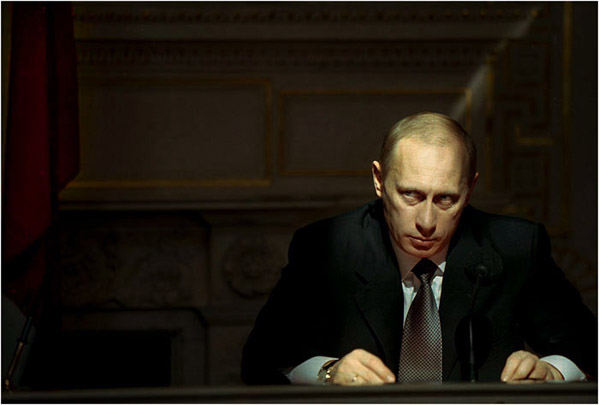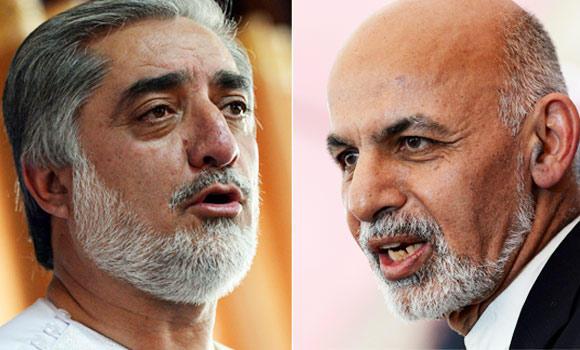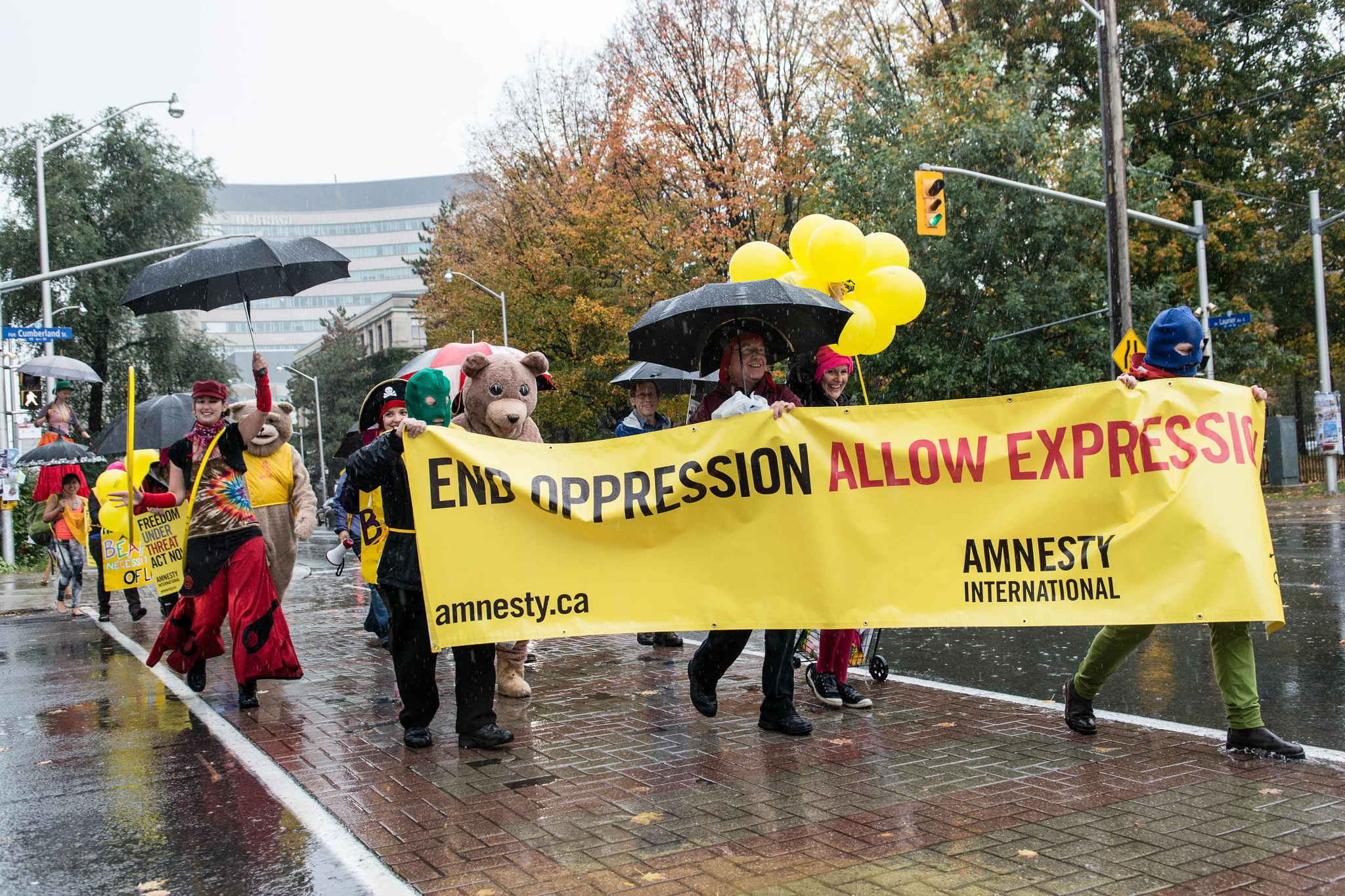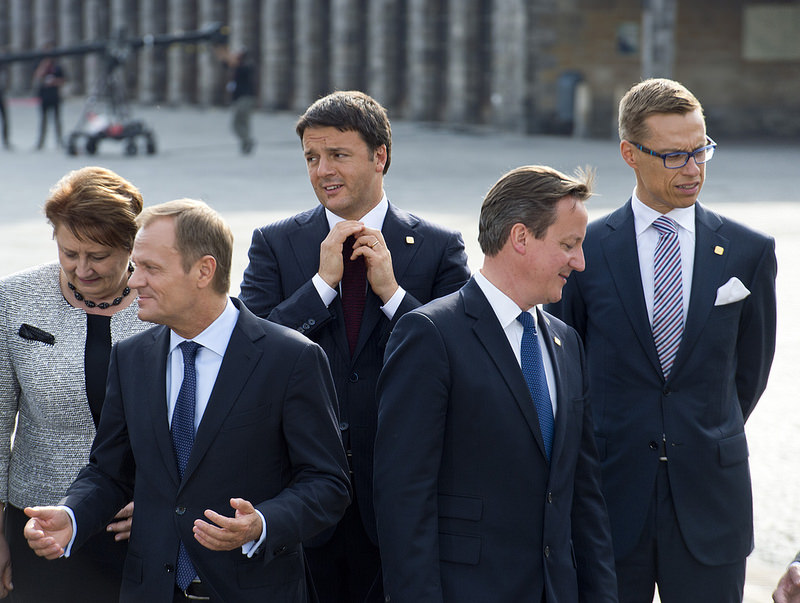Just last week, a US military strike against Syria appeared inevitable. Now, a surprise US-Russian accord to eliminate the Syrian chemical weapons arsenal has dramatically lessened the immediate possibility of American intervention. However, the accompanying UN resolution and specific details have yet to be worked out at the time of writing.
Russian President Vladimir Putin certainly has good reason to be happy. Only a couple weeks ago, his relationship with President Obama was at an all-time low, due to disputes over the extradition of Edward Snowden, Putin’s continued support for the Assad regime, and Obama’s response to Russia’s new repressive anti-gay laws. In contrast, the press is now praising Putin as a masterful statesman and peacemaker and his September 11 New York Times op-ed piece has, for the most part, garnered a positive reception.
[captionpix align=”right” theme=”elegant” width=”300″ imgsrc=”http://fellowshipofminds.files.wordpress.com/2012/09/wink31.jpg” captiontext=”How You Doing?”]
Many commentators and some Republican Congressmen have accused President Obama of selling out to Putin, specifically attacking him for allegedly agreeing to withdraw the threat of military action from the UN resolution that is being drafted. Republican Congressman Mike Rogers charged that Obama humiliatingly agreed to “a Russian plan for Russian interests”, although that is factually inaccurate. It seems more probable that if Putin truly wanted to humiliate Obama, he could have simply sat back and watched Obama wage what appeared to be a losing battle to win Congressional consent for intervention. Instead, Putin took the initiative, scoring a major diplomatic coup that allowed Obama to save face, and achieved key strategic objectives for Russia in Syria, the Middle East as a whole, and the wider world.
In Syria, Putin achieved two key goals by means of the accord: strengthening the Assad regime and preventing chemical weapons proliferation. Certainly, the Assad regime is reluctant to part with its chemical weapons which in addition to their battlefield utility in the civil war have long served as a strategic deterrent to Israel. Still, as the BBC’s Jeremy Bowen points out, “For President Assad, giving up the chemical arsenal is an investment in the future of his regime.” By agreeing to the Russian proposal for the surrender of his chemical weapons, Assad removed the justification for US intervention.
The accord also gives the Syrian leader a green light to wage the civil war by conventional means without fear of American intervention. In fact, as soon as it was signed, the regime stepped up bombing of rebel enclaves in the Damascus suburbs. Assad’s government even declared the accord a “victory.” This announcement should not be dismissed as mere propaganda, since US regional allies like Turkey and the Syrian rebels both warn that the accord effectively gives Assad a free hand to use conventional weapons. If Assad can defeat the rebels, then Russia will be spared the development of a jihadist base in Syria and spread of terrorism to Russia that Putin so fears. Likewise, even if Assad eventually loses, there will be no chemical weapons left in Syria for terrorists to use if the Russian plan is effectively implemented.
Beyond Syria, Putin has established himself as a central power broker in the Middle East. Russia has weaker military capacity than the US in the region, but it has more than made up for that with diplomatic victories. Putin has held a firm line on Syria, while the United States and Europe have shifted policy frequently to the point of incoherence. While China, India, and Brazil are growing in economic importance, they lack long-term diplomatic experience or military capability in the Middle East. Now, by combining strong policy statements with a willingness to compromise to achieve shared goals, Putin has gained international recognition for Russia’s ability to act as an arbiter of Middle Eastern politics.
At an international level, Putin has taken a big step forward toward constraining American power in a web of international institutions and strengthening the norm against unilateral intervention. These are logical steps for Russia, since it is both economically and militarily weaker than the US. In the 1990s, Russia was powerless to stop NATO intervention against its client state Serbia. Likewise, Russia blamed NATO for overstepping its mandate in the 2011 Libyan intervention. By preventing the US from carrying out its planned strikes against Syria and by conducting business through the UN Security Council, Putin has successfully constrained American ability to act unilaterally and has set a precedent for future US action. Moreover, by achieving a diplomatic success and using the rhetoric of international law and respect for the UN system to discourage intervention, he has struck a broad chord of support in Western countries. In sum, Vladimir Putin has played his cards well in Syria and has shown himself to be a master of Realpolitik.




